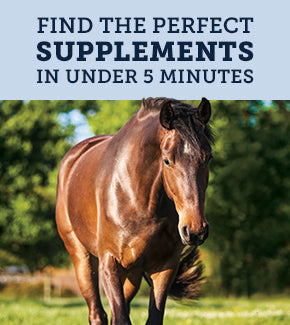Why We Love Slippery Elm!
The natural world is abundant in useful and wonderful plants. Many plants have been utilized by humans for centuries, if not longer, due to their beneficial properties. Chamomile, Garlic, Ginger, Licorice, Myrrh, and Slippery Elm are just a few examples of such plants.
And these plants aren't just beneficial for humans! Many have their place in animal care—horses included. But, what sets Slippery Elm apart? What makes it a useful addition to horse supplements? How can it benefit your horses? Keep reading to find answers to these questions and more.
Slippery Elm, a Useful Plant
Slippery Elm is an aptly named plant. When chewed and eaten, the inner bark starts to feel slick or slippery. Also known as Ulmus rubra, Slippery Elm is indigenous to North America, and while most of the tree is unpalatable or inedible, the inner bark is known for its active properties. It was first used by Native Americans as a culinary ingredient and for medicinal purposes.
When it comes to medicinal purposes, Slippery Elm’s inner bark can also be used to stimulate mucus membranes. As these membranes become stimulated, they can produce excess mucus. This can be beneficial in dealing with issues related to the stomach and digestive tract in both humans and horses.
Check us out at www.silverliningherbs.com, or give us a call to learn what Silver Lining Herbs products contain Slippery Elm and how they can benefit you and your animals!
Slippery Elm as an Active Ingredient
As a result, slippery elm can appear as an active ingredient in natural horse supplements. It can be given to horses on its own or as an ingredient blended with other active herbs. You can find it in supplements related to digestive care and gut support. You may also find it in horse probiotics, or along with probiotics in various gut supportive products. It’s typically added for its mucus membrane-stimulating properties. As with any supplement, be sure to read the dosage guidelines and consult with a veterinarian before giving it to your horse.
Supplements made with slippery elm may be able to help with stomach or gut discomfort, such as discomfort related to ulcers and colitis. Slippery elm can also be useful when paired with probiotics, as excess mucus can “protect” active cultures as they make their way into the digestive tract where they’re most beneficial. Additionally, slippery elm can serve as a source of fiber—another essential nutrient for supported digestion.
A Natural Blend for Healthy, Happy Horses
As useful as slippery elm can be, it has the potential to be even more impactful when combined with other natural, plant-sourced ingredients. For natural digestive care products, slippery elm can be blended with other plants like chamomile, ginger, and licorice. These three plant-sourced ingredients can each have their own soothing properties.
Chamomile, for instance, can be useful for its ability to help calm signs related to stress. Ginger can be helpful for supporting horses experiencing stomach discomfort (including ulcers). Licorice can serve as a gentle, low-grade laxative. Together, these ingredients, along with slippery elm, can give your horse the support they need with soothing digestive discomfort, maintaining normal digestion, or potentially restoring gut wellness.







